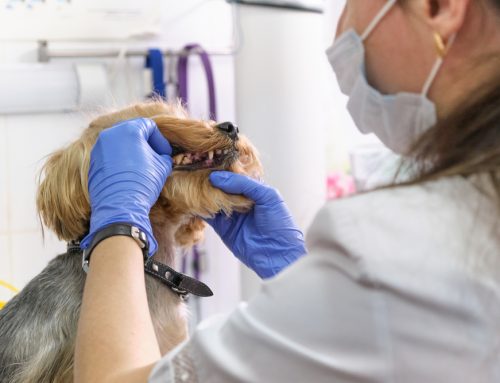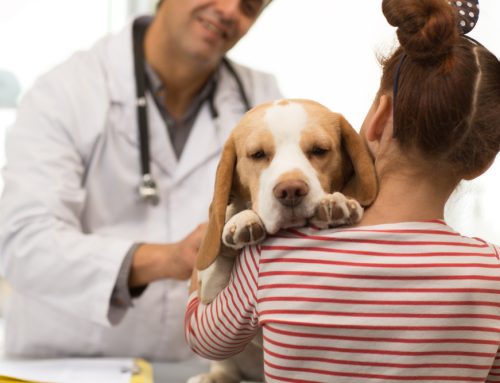Puppy antics can be a bright spot in your day, and you have so much to learn about each other. With your help, your puppy can grow into a healthy, devoted companion. An essential part of caring for your new puppy is completing a series of puppy vaccinations. The Westerville Veterinary Clinic team compares your puppy’s immune system to an internal protective “immune army” to help answer your questions about puppy vaccinations.
When should my puppy be vaccinated?
During the first few days of life, your puppy received colostrum in their mother’s milk. Colostrum contains maternal antibodies to protect your puppy from disease, but that protection fades over time as your puppy grows. A “window of vulnerability” occurs when maternal immunity decreases and your puppy is no longer fully protected. Each puppy has a different “window,” but research suggests that puppies generally have strong maternal immunity until 8 weeks of age, and their own immune system matures at 16 weeks of age. Vaccinations given prior to 8 weeks of age may not allow a puppy to mount an appropriate immune response because their maternal antibodies interfere.
How do puppy vaccinations work?
Your puppy’s immune system is similar to an internal army that protects against invasion from potentially deadly diseases, such as parvovirus, distemper, and leptospirosis. A vaccination stimulates the immune system to develop an immune army headquarters, and assigns soldiers to attack specific disease invaders, and call for reinforcements. The goal of vaccination is to create a well-trained immune army that quickly responds when an invader is detected. Natural immunity may occur by recovering from a disease, but the preferred method is to keep your puppy healthy with vaccinations.
Why does my puppy need a vaccination series?
A series of vaccinations provides a degree of protection during the eight-week vulnerability window, and helps create a mature immune army for full disease protection. An immature immune army is similar to children throwing rocks at a fully trained disease army, and is not adequate protection for your puppy. Depending on your puppy’s age, the first vaccination may recruit the equivalent of teenage immune soldiers with guns, who have yet to receive training or target practice. Each subsequent vaccination helps train adult immune soldiers, and builds an immune army headquarters that develops a more coordinated response. Your puppy’s final vaccination creates skilled immune snipers to target and defeat disease invaders.
Why are puppy vaccinations given weeks apart?
The immune system goes through a series of phases after vaccination. The first week is the recruitment period for the immune army. The immune soldiers are gathered and an immune army headquarters established. The second week allows immune army headquarters to settle down, formulate response plans against disease invaders, and assign immune soldiers to their posts. The third week is a time for immune army recalibration while awaiting further direction, which will come when your puppy receives the next vaccination. Giving vaccinations too close together can overwhelm the immune system and result in decreased, not increased, immunity.
What happens if my puppy misses a vaccination?
Waiting too long between vaccinations can cause immune soldiers to lose their training or leave their posts, and will expose your puppy to disease risks. The entire round of vaccinations does not usually need repeating, because your puppy is older and will have a more mature immune response to vaccination. The final vaccinations can occur once your puppy reaches at least 16 weeks of age, and has been vaccinated in the previous three weeks.
How can I keep my puppy healthy?

Setting your puppy up for success requires loving support during all formative stages, including attention to your puppy’s health needs. Check out membership in our Platinum Health Plan to easily facilitate your puppy’s appointments, and provide them with the best possible medical care. The Platinum Health Plan includes unlimited exams, all your puppy’s vaccinations, spay or neuter for pets under 18 months old, after hours emergency services, and much more.
The Westerville Veterinary Clinic team loves seeing puppies, and we especially enjoy watching them grow into healthy, happy adult dogs. Don’t hesitate to contact us to schedule an appointment if you have puppy questions, or want to learn more about how the Platinum Health Plan can enhance your puppy’s health.







Leave A Comment